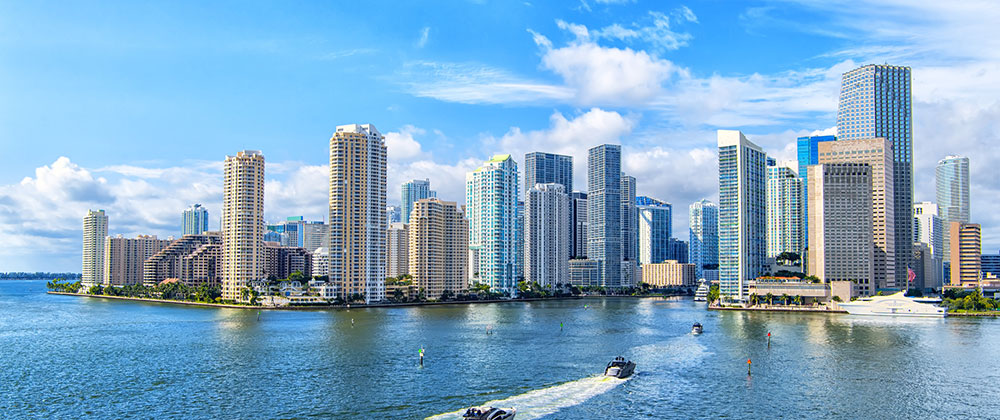 The United States Supreme Court has agreed to decide whether the State of Arizona may impose tough anti-immigration measures. Among the issues that will be decided on is a law that was enacted last year that allows the police in Arizona to question people about their immigration status when making a lawful stop. It is worth noting that the law, S.B. 1070, was passed by the Arizona Legislature in the first months of 2010, and was signed into law by Governor Jan Brewer in April, at which point is was immediately challenged by the Obama administration. Of the four provisions challenged, the most prominent was a requirement that state law enforcement officials determine the immigration status of anyone they stop or arrest if officials have reason to believe that the individual might be an illegal immigrant. Similar legislation is pending in the states of Utah, South Carolina, Indiana, Georgia and Alabama. The U.S. Supreme Court Blog stated the following: “The Arizona measure, and one in Alabama that goes even further, were passed by state legislatures with the specific intent of making life so difficult for undocumented aliens that they would choose to leave the state. Other states are also passing similar measures.” Whether the opinion expressed in this statement is in any way aligned with that of the Justices’ remains to be seen, however. ABC News reports that the “case will be argued sometime this spring,” adding that, “although deeply opposed to the law, the Obama administration has asked the Supreme Court to refrain from taking up the case at this juncture.” Given the caliber of the issue at hand, supporters and opponents of the measure are rallying and bringing the immigration debate to center stage. The National Immigration Forum stated that they are hopeful that the Supreme Court will clarify once and for all that only the federal government has the authority to create and enforce immigration law. They-like many others-are of the opinion that Arizona’s law is misguided and unconstitutional and expect the Court “to use this opportunity to slam the brakes on other state-based immigration laws that are in conflict with our Constitution and core American values.” From an economic standpoint, opponents of the measure who include the Immigration Policy Center argue that Arizona’s infamous anti-immigrant law impose unfunded mandates on the police, jails, and courts; drive away workers, taxpayers, and consumers upon whom the state economy depends; and invite costly lawsuits and tourist boycotts. These are economic consequences that few states can afford at a time of gaping budget deficits. TheNational Council of La Raza , a Hispanic civil rights and advocacy organization that according to Open Secrets spent more than $5.6 million to lobby Congress from 1998 to 2011 on immigration, hopes that by intervening in this case, the Supreme Court will affirm that the federal government is responsible for immigration enforcement and that states do not have the right to usurp that authority by establishing their own immigration laws. On the other side of the divide, the Federation for American Immigration Reform (FAIR) welcomes the decision by the Court in the same way they welcomed and helped draft the controversial law in question. According to Open Secrets, FAIR spent more than $3.4 million from 1998 to 2011 in order to lobby Congress on immigration-related legislation, like a proposed House GOP sponsored resolution that “would have prohibited the U.S. Department of Justice from using any funds to sue Arizona in an effort to strike down its new immigration enforcement law, S.B. 1070.” In addition, the President of FAIR has gone on record saying that he and his organization stand by the law because they believe it is “a legitimate effort by a state to partner with the federal government in assisting in the enforcement of our immigration laws.” Without a shadow of doubt, the decision made by the U.S. Supreme court will have far-reaching consequences that will affect immigration law nation-wide. Because the stakes are so high, immigration attorneys from New York and Miami alike will be waiting attentively for the verdict that could reshape the nation’s legal framework.
The United States Supreme Court has agreed to decide whether the State of Arizona may impose tough anti-immigration measures. Among the issues that will be decided on is a law that was enacted last year that allows the police in Arizona to question people about their immigration status when making a lawful stop. It is worth noting that the law, S.B. 1070, was passed by the Arizona Legislature in the first months of 2010, and was signed into law by Governor Jan Brewer in April, at which point is was immediately challenged by the Obama administration. Of the four provisions challenged, the most prominent was a requirement that state law enforcement officials determine the immigration status of anyone they stop or arrest if officials have reason to believe that the individual might be an illegal immigrant. Similar legislation is pending in the states of Utah, South Carolina, Indiana, Georgia and Alabama. The U.S. Supreme Court Blog stated the following: “The Arizona measure, and one in Alabama that goes even further, were passed by state legislatures with the specific intent of making life so difficult for undocumented aliens that they would choose to leave the state. Other states are also passing similar measures.” Whether the opinion expressed in this statement is in any way aligned with that of the Justices’ remains to be seen, however. ABC News reports that the “case will be argued sometime this spring,” adding that, “although deeply opposed to the law, the Obama administration has asked the Supreme Court to refrain from taking up the case at this juncture.” Given the caliber of the issue at hand, supporters and opponents of the measure are rallying and bringing the immigration debate to center stage. The National Immigration Forum stated that they are hopeful that the Supreme Court will clarify once and for all that only the federal government has the authority to create and enforce immigration law. They-like many others-are of the opinion that Arizona’s law is misguided and unconstitutional and expect the Court “to use this opportunity to slam the brakes on other state-based immigration laws that are in conflict with our Constitution and core American values.” From an economic standpoint, opponents of the measure who include the Immigration Policy Center argue that Arizona’s infamous anti-immigrant law impose unfunded mandates on the police, jails, and courts; drive away workers, taxpayers, and consumers upon whom the state economy depends; and invite costly lawsuits and tourist boycotts. These are economic consequences that few states can afford at a time of gaping budget deficits. TheNational Council of La Raza , a Hispanic civil rights and advocacy organization that according to Open Secrets spent more than $5.6 million to lobby Congress from 1998 to 2011 on immigration, hopes that by intervening in this case, the Supreme Court will affirm that the federal government is responsible for immigration enforcement and that states do not have the right to usurp that authority by establishing their own immigration laws. On the other side of the divide, the Federation for American Immigration Reform (FAIR) welcomes the decision by the Court in the same way they welcomed and helped draft the controversial law in question. According to Open Secrets, FAIR spent more than $3.4 million from 1998 to 2011 in order to lobby Congress on immigration-related legislation, like a proposed House GOP sponsored resolution that “would have prohibited the U.S. Department of Justice from using any funds to sue Arizona in an effort to strike down its new immigration enforcement law, S.B. 1070.” In addition, the President of FAIR has gone on record saying that he and his organization stand by the law because they believe it is “a legitimate effort by a state to partner with the federal government in assisting in the enforcement of our immigration laws.” Without a shadow of doubt, the decision made by the U.S. Supreme court will have far-reaching consequences that will affect immigration law nation-wide. Because the stakes are so high, immigration attorneys from New York and Miami alike will be waiting attentively for the verdict that could reshape the nation’s legal framework.
- Home
- About
- Immigration
- Attorneys
- Blog
- Testimonials
- Results
- Videos
- Contact



